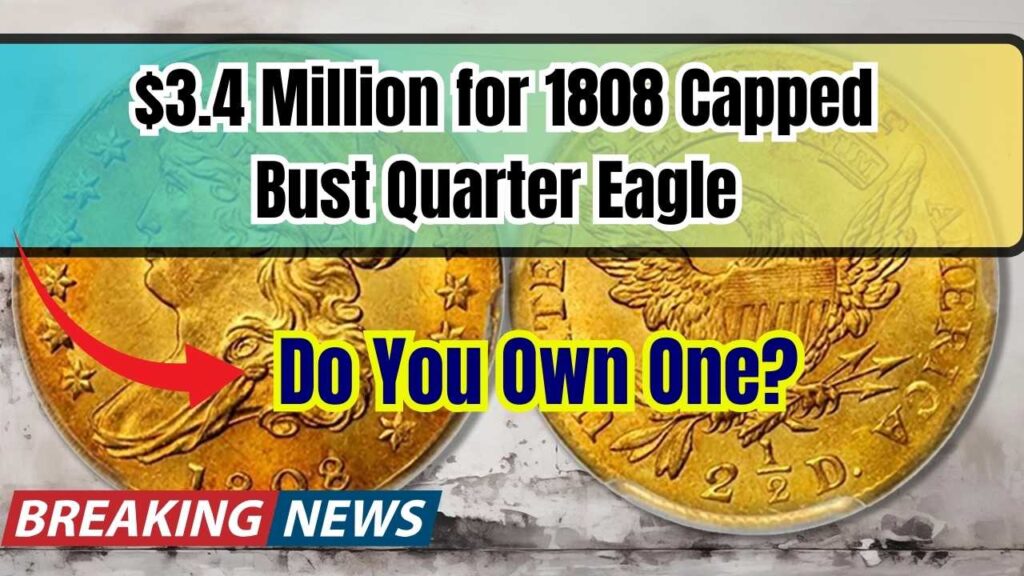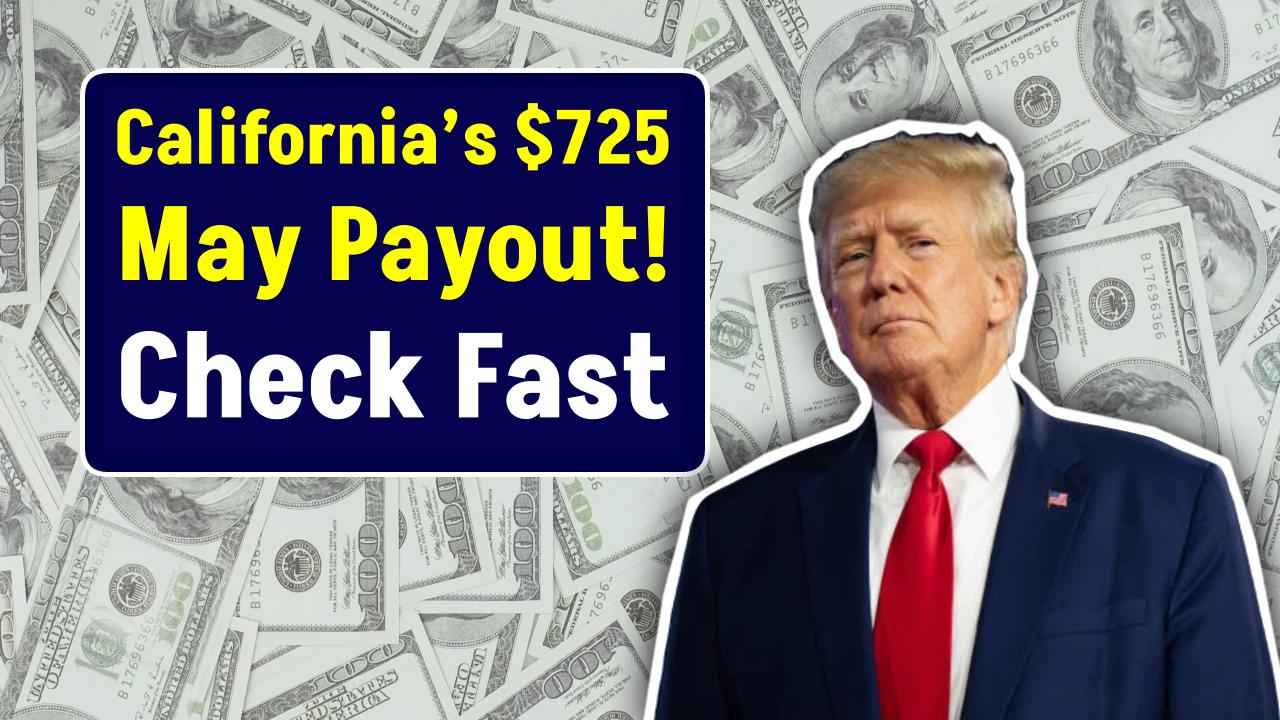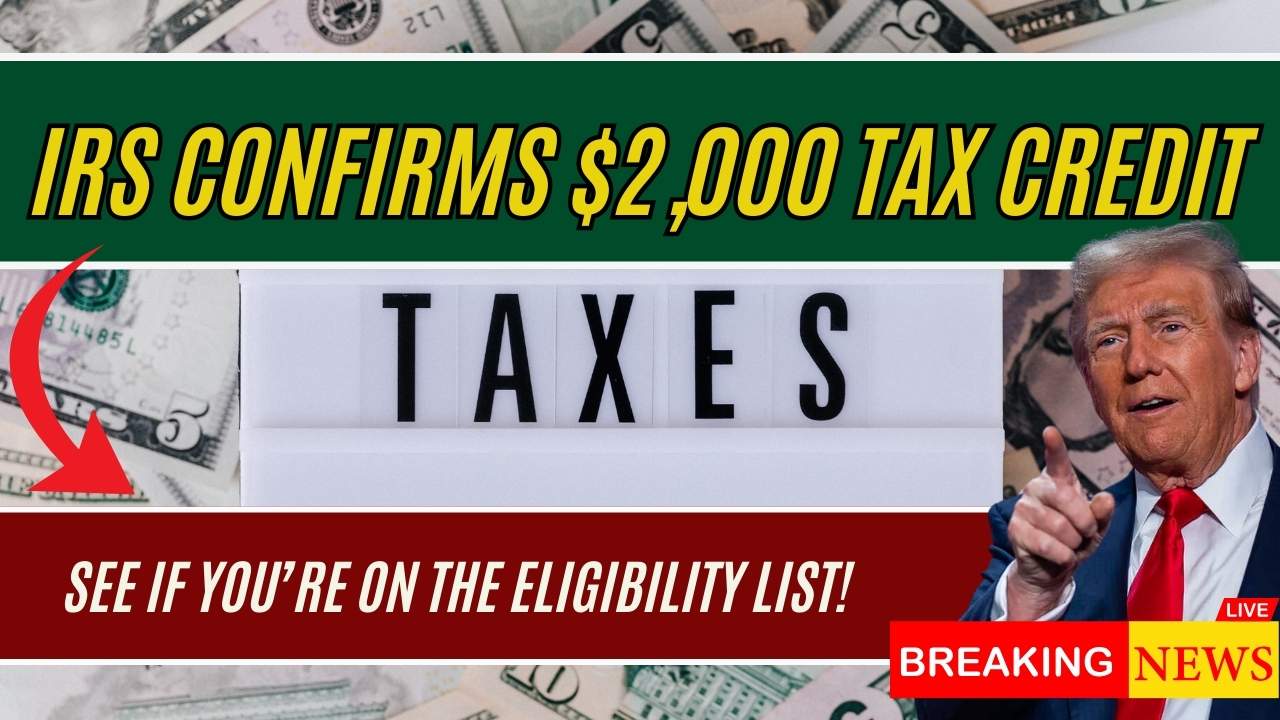$3.4 Million for 1808 Capped Bust Quarter Eagle – Do You Own One?
$3.4 Million for 1808 Capped Bust Quarter Eagle – A rare 1808 Capped Bust Quarter Eagle gold coin has stunned collectors by fetching a jaw-dropping $3.4 million at auction, setting a new benchmark in the numismatic world. With only a limited number of these coins ever minted and even fewer surviving in pristine condition, this historic artifact has become one of the most sought-after collectibles in American coinage history.

The coin, originally valued at just $2.50 when first issued over two centuries ago, is now a millionaire-maker for anyone lucky enough to have one. Let’s explore why the 1808 Quarter Eagle is so valuable, what makes it unique, and how you can find out if you or a loved one might unknowingly own a treasure worth millions.
$3.4 Million for 1808 Capped Bust Quarter Eagle
| Feature | Details |
|---|---|
| Coin Name | 1808 Capped Bust Quarter Eagle |
| Original Face Value | $2.50 |
| Auction Price (2024) | $3.4 million |
| Minted | Only in 1808 (One-Year Type) |
| Total Mintage | 2,710 coins |
| Estimated Survivors | 125 to 150 known examples |
| Designer | John Reich |
| Composition | 91.67% gold, 8.33% copper |
| Weight & Diameter | 4.37 grams; 20 mm |
| Official Auction Site | Stack’s Bowers |
The 1808 Capped Bust Quarter Eagle isn’t just a coin—it’s a piece of American history that could be worth a fortune. Whether you’re a seasoned collector or someone who stumbled upon an old coin in a drawer, this is one coin worth a second look. With prices soaring past $3 million, this little golden artifact proves that big treasures can come in small sizes. Its historical value, rarity, and investment potential make it a timeless collector’s dream.
Why Is the 1808 Capped Bust Quarter Eagle So Valuable?
1. A One-Year Wonder
This coin was minted only once, in 1808, making it a one-year type coin. Such coins are extremely desirable to collectors who seek complete type sets of U.S. gold coinage.
2. Low Mintage and Survival Rate
Only 2,710 coins were struck at the Philadelphia Mint. Experts estimate that just 125 to 150 specimens still exist today, many of which are in worn or damaged condition.
3. Historical Significance
The coin’s design by John Reich marks a significant departure from earlier American styles. Its limited release coincided with early 19th-century monetary reforms, adding to its historical cachet.
4. Premium Condition Multiplies Value
Coins graded MS-63 or higher can fetch several hundred thousand dollars, while MS-65 coins have crossed the $3 million mark.
Design Details: What to Look For
Obverse (Front)
- Lady Liberty faces left, wearing a soft cap.
- Encircled by 13 stars, symbolizing the original colonies.
Reverse (Back)
- A heraldic eagle with a shield, arrows, and olive branch.
- “UNITED STATES OF AMERICA” inscribed around the border.
Edge & Metal Composition
- Reeded edge
- 91.67% gold, rest copper for durability
Collectors note a die crack from Liberty’s cap to the edge – a telltale sign of authenticity.
What Is Your Coin Worth?
The value depends on the coin’s condition, also known as “grade.”
| Grade | Estimated Value (USD) |
|---|---|
| MS-65 | $3,400,000 |
| MS-64 | $917,500 |
| MS-63 | $625,000 |
| AU-50 | $159,000 |
| EF-40 | $127,500 |
| VF-20 | $59,400 |
| F-12 | $48,400 |
How to Tell if You Own One?
Step 1: Look for Date and Design
Only 1808 coins with the Capped Bust Liberty and heraldic eagle qualify.
Step 2: Check the Coin’s Weight and Size
- Weight: 4.37 grams
- Diameter: 20 mm
Step 3: Authenticate Professionally
Consult grading services like PCGS or NGC to determine grade and authenticity.
Step 4: Seek Expert Valuation
Top numismatic auction houses include:
- Stack’s Bowers
- Heritage Auctions
Step 5: Store Securely
If you do own one, store it in a temperature-controlled safe and keep it insured.
Real-Life Examples
- A specimen graded MS-65+ by PCGS recently sold for $3.4 million.
- Another coin in MS-63 condition fetched $625,000.
- Lower-grade examples still command tens of thousands.
These prices demonstrate the explosive value even slightly worn examples can retain.
Expert Commentary
According to David Hall, founder of PCGS: “The 1808 Quarter Eagle represents the intersection of beauty, rarity, and American history. It’s a must-have for elite collectors.”
Laura Sperber, President of Legend Rare Coin Auctions, added: “This coin has been called a ‘blue-chip’ of numismatics. It holds value even in volatile markets.”
Tips for Collectors and Investors
- Avoid Counterfeits: Many fakes exist. Always buy from reputable dealers.
- Use a Magnifier: Check for fine design details like star spacing and edge reeding.
- Monitor Market Trends: Coin values can shift based on gold prices and collector interest.
- Join Collector Forums: Communities like the PCGS Coin Forum can be invaluable for insight.
- Insure Your Collection: Use specialized insurance for collectibles and precious metals.
FAQs About $3.4 Million for 1808 Capped Bust Quarter Eagle
Q1. How many 1808 Quarter Eagles still exist?
Only 125 to 150 are estimated to remain in any condition.
Q2. Can I sell my coin without grading it?
Technically yes, but graded coins command much higher prices.
Q3. Where should I get my coin graded?
Top services include:
- Professional Coin Grading Service (PCGS)
- Numismatic Guaranty Company (NGC)
Q4. What if my coin is damaged or worn?
Even damaged coins can be worth tens of thousands, depending on rarity.
Q5. Where can I learn more about U.S. rare coins?
Visit:
- NGC Coin Explorer
- Stack’s Bowers Learning Center
- American Numismatic Association








